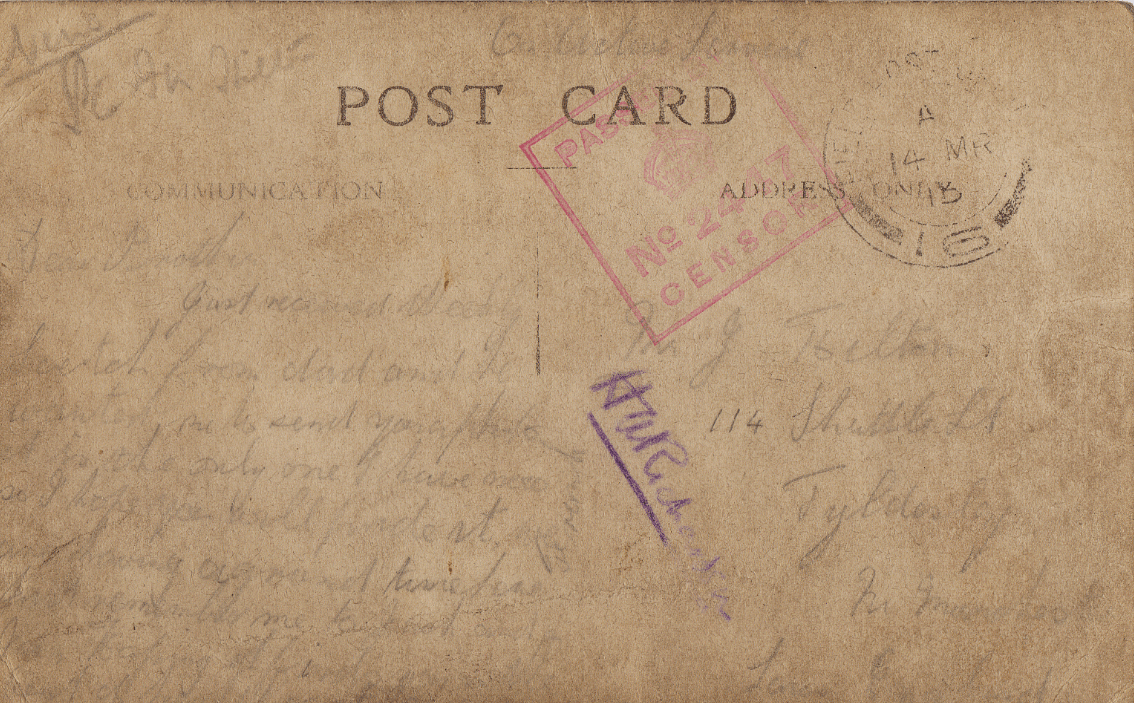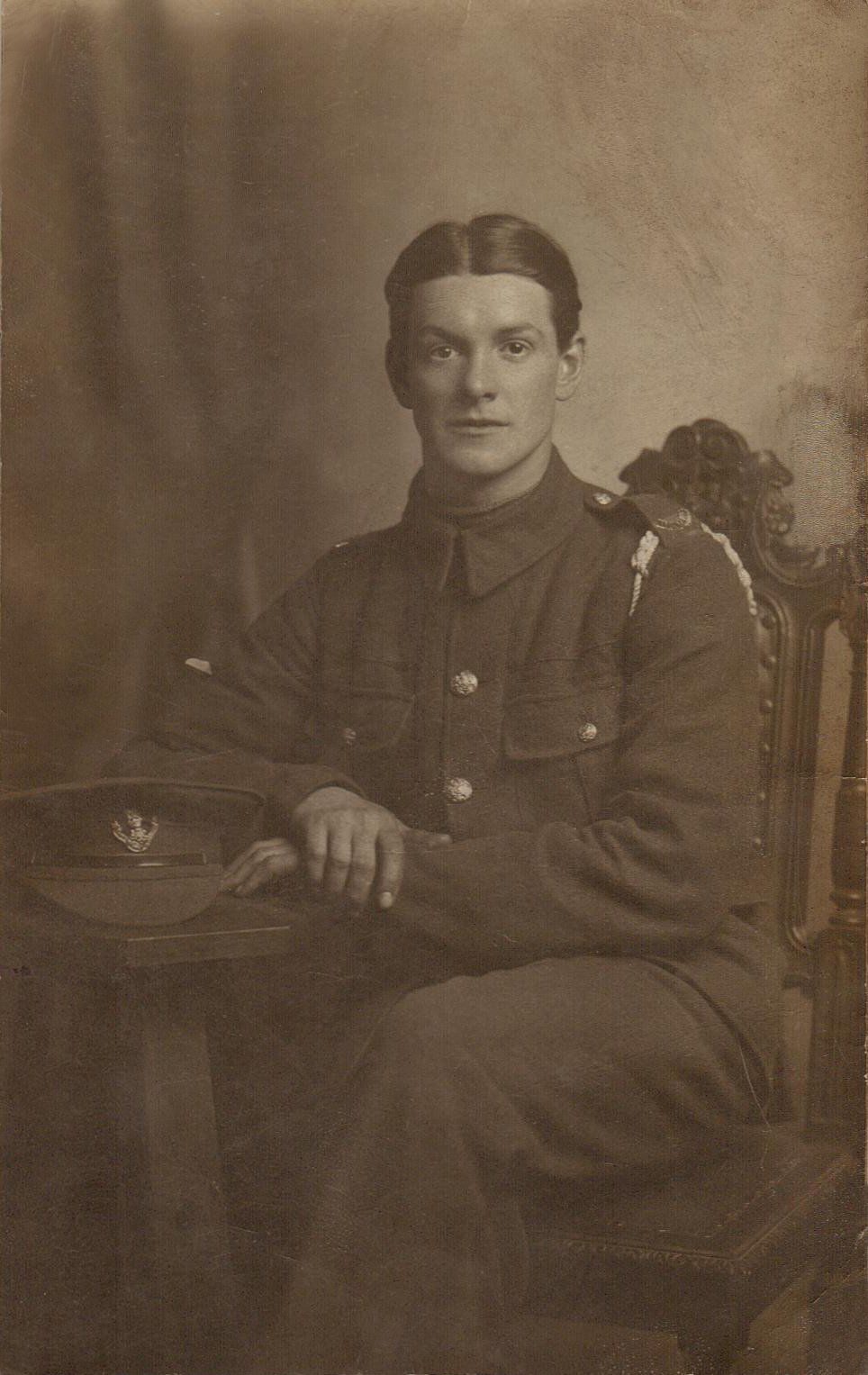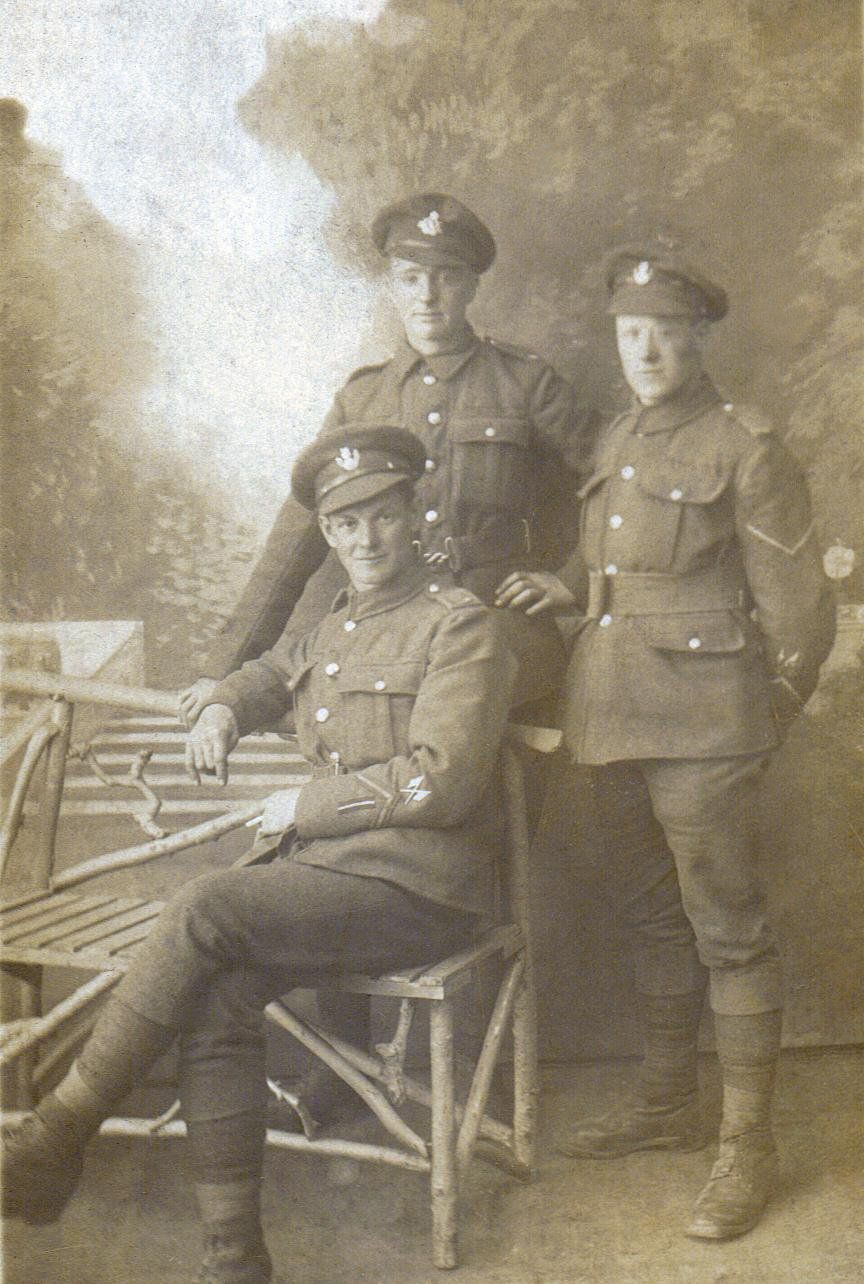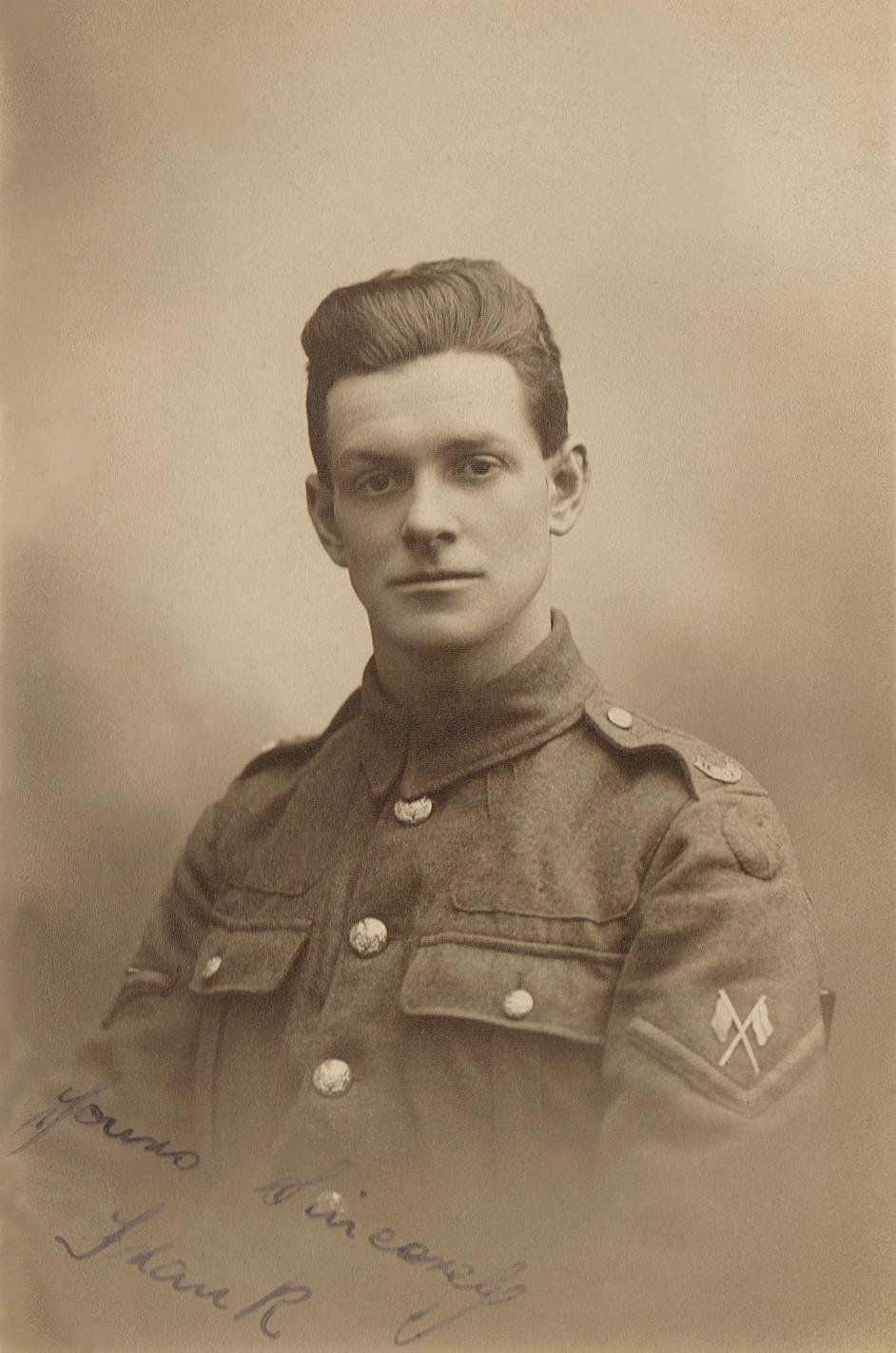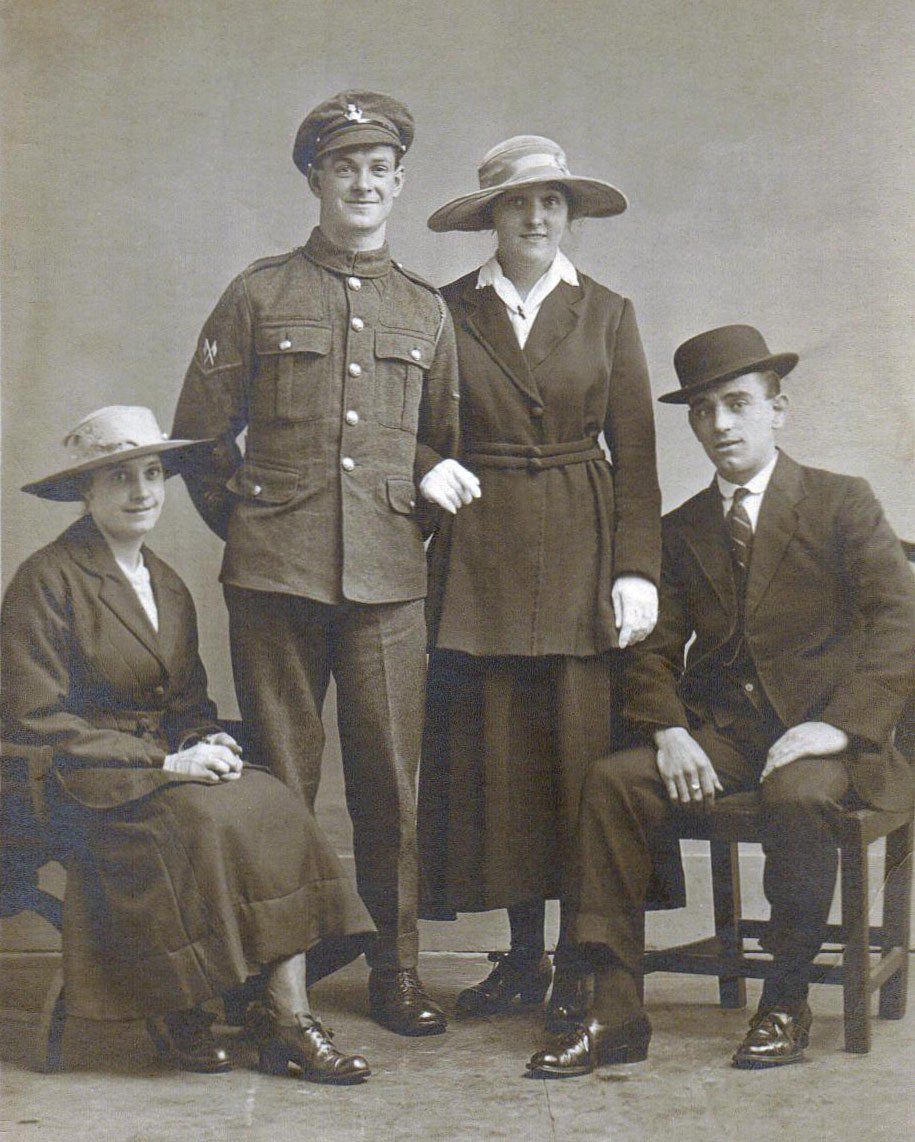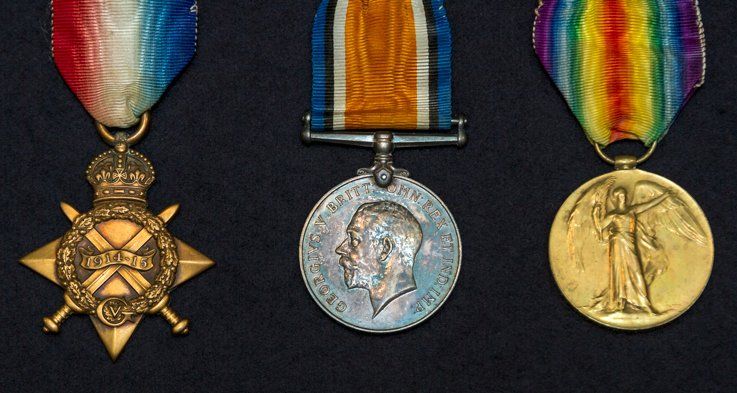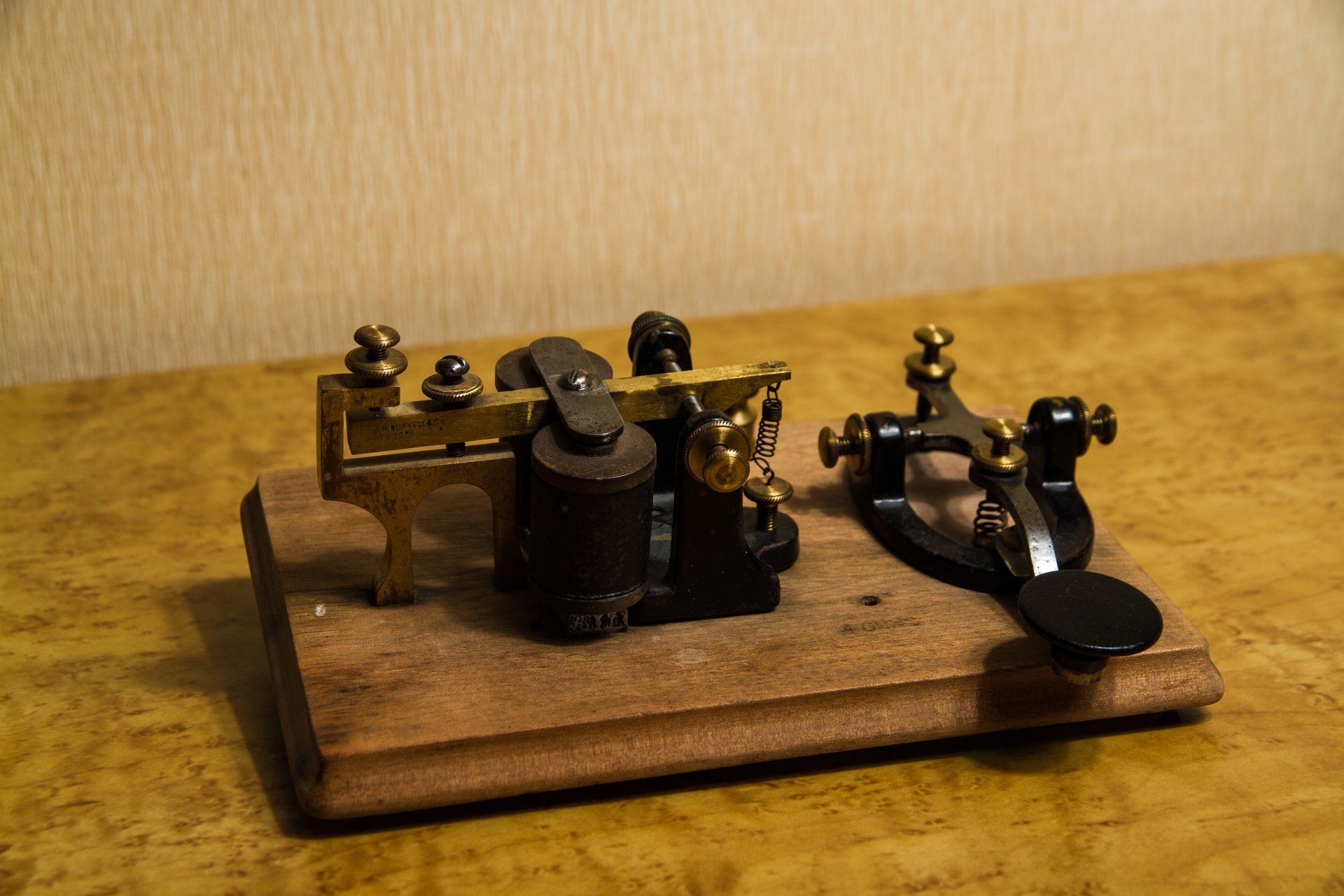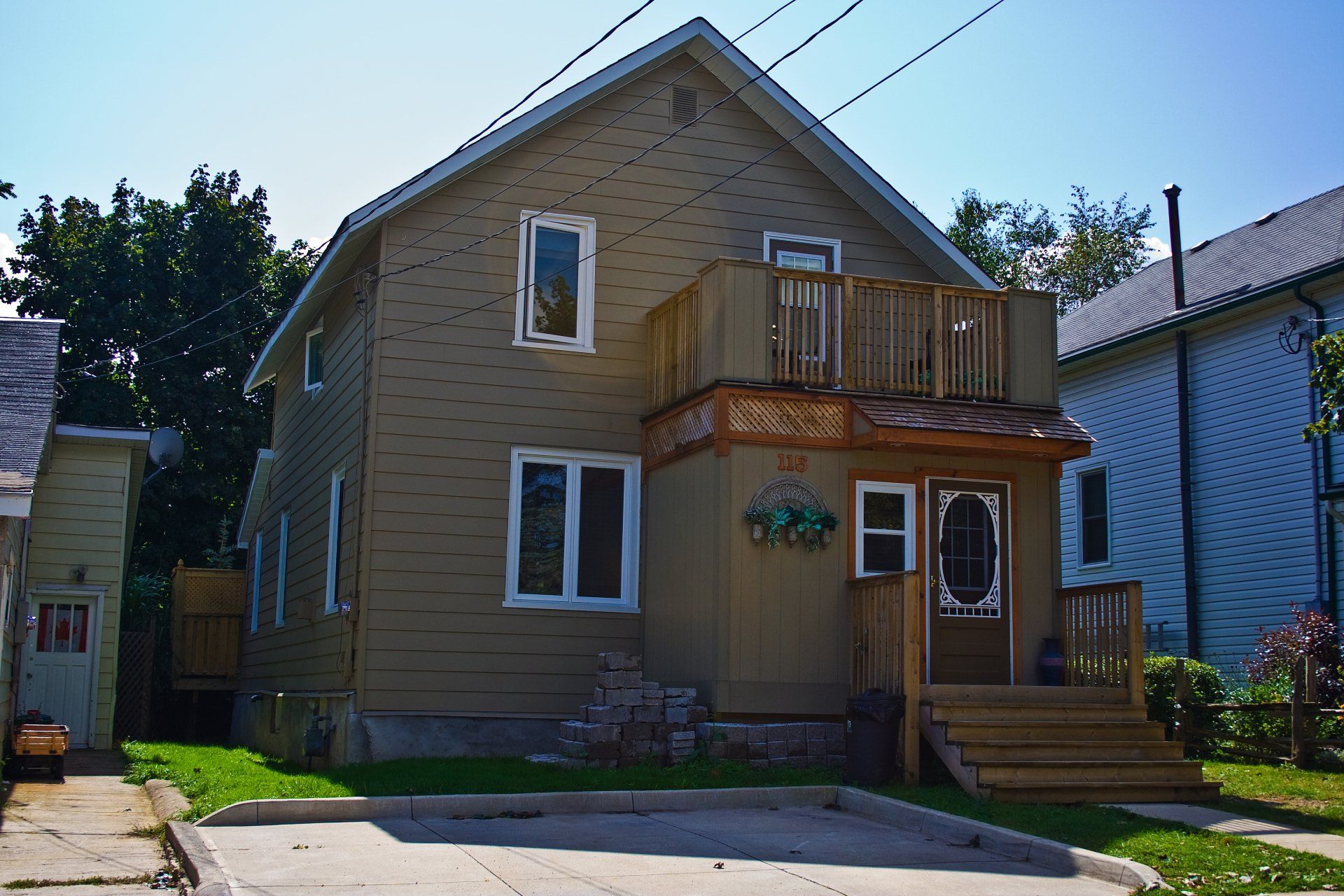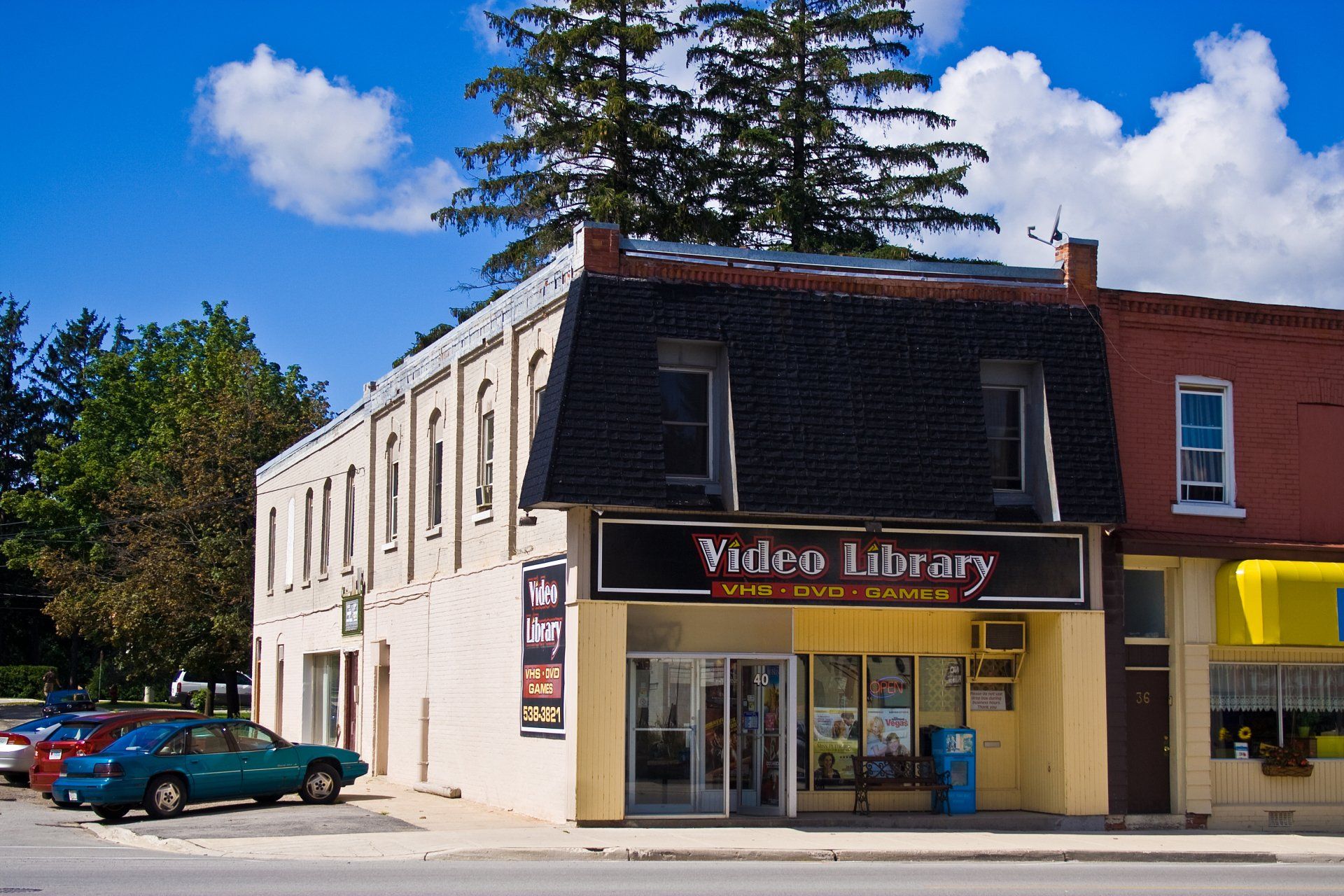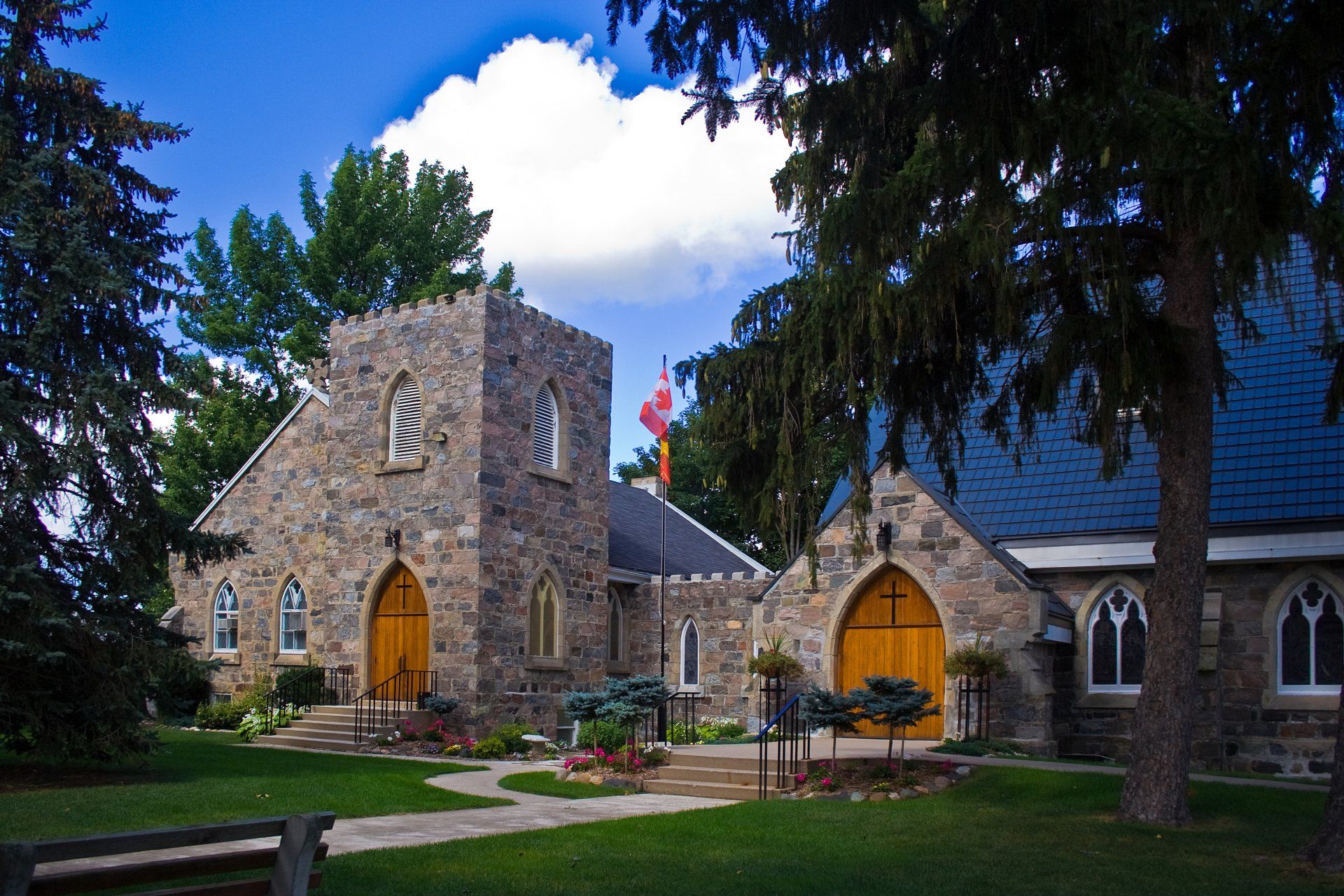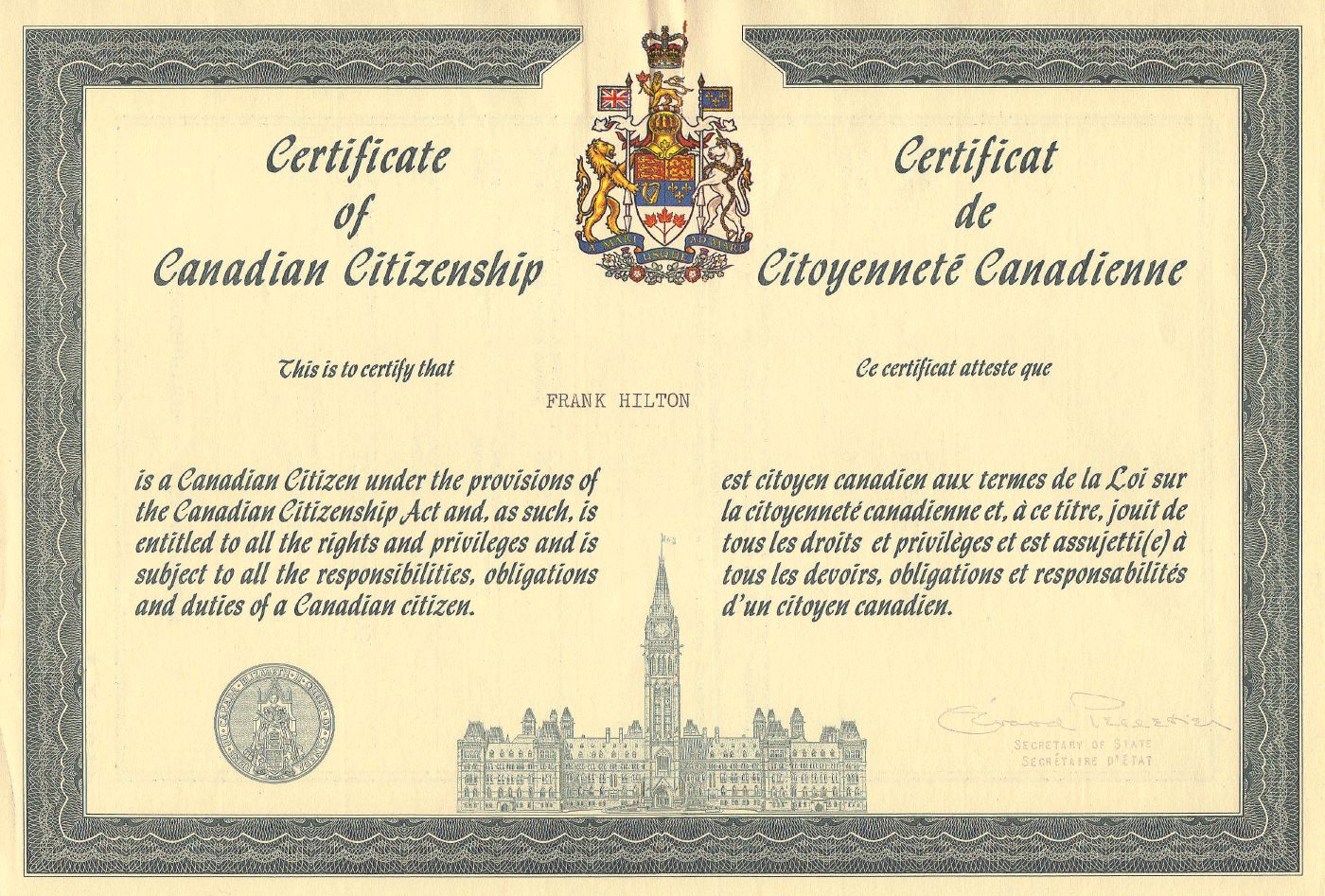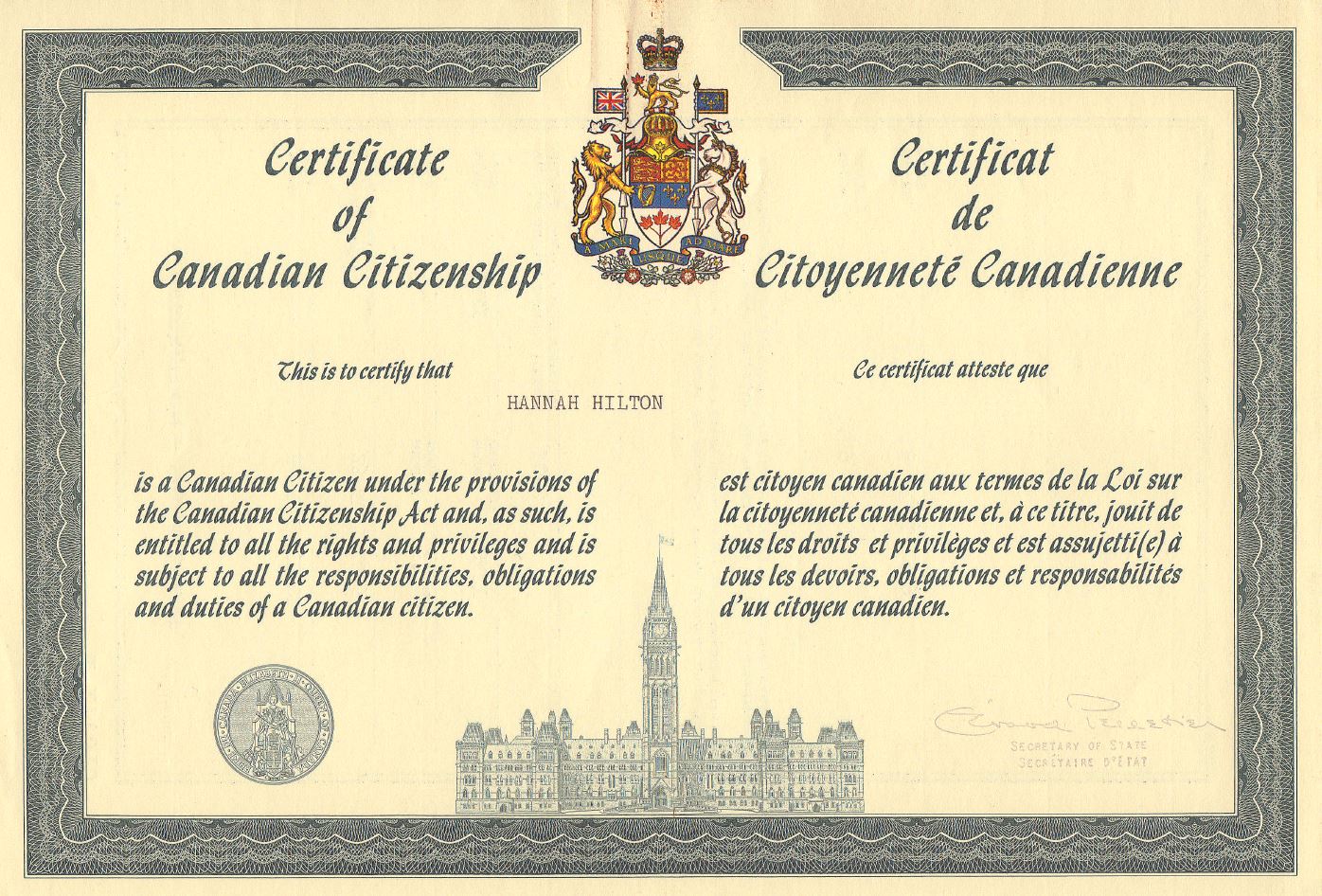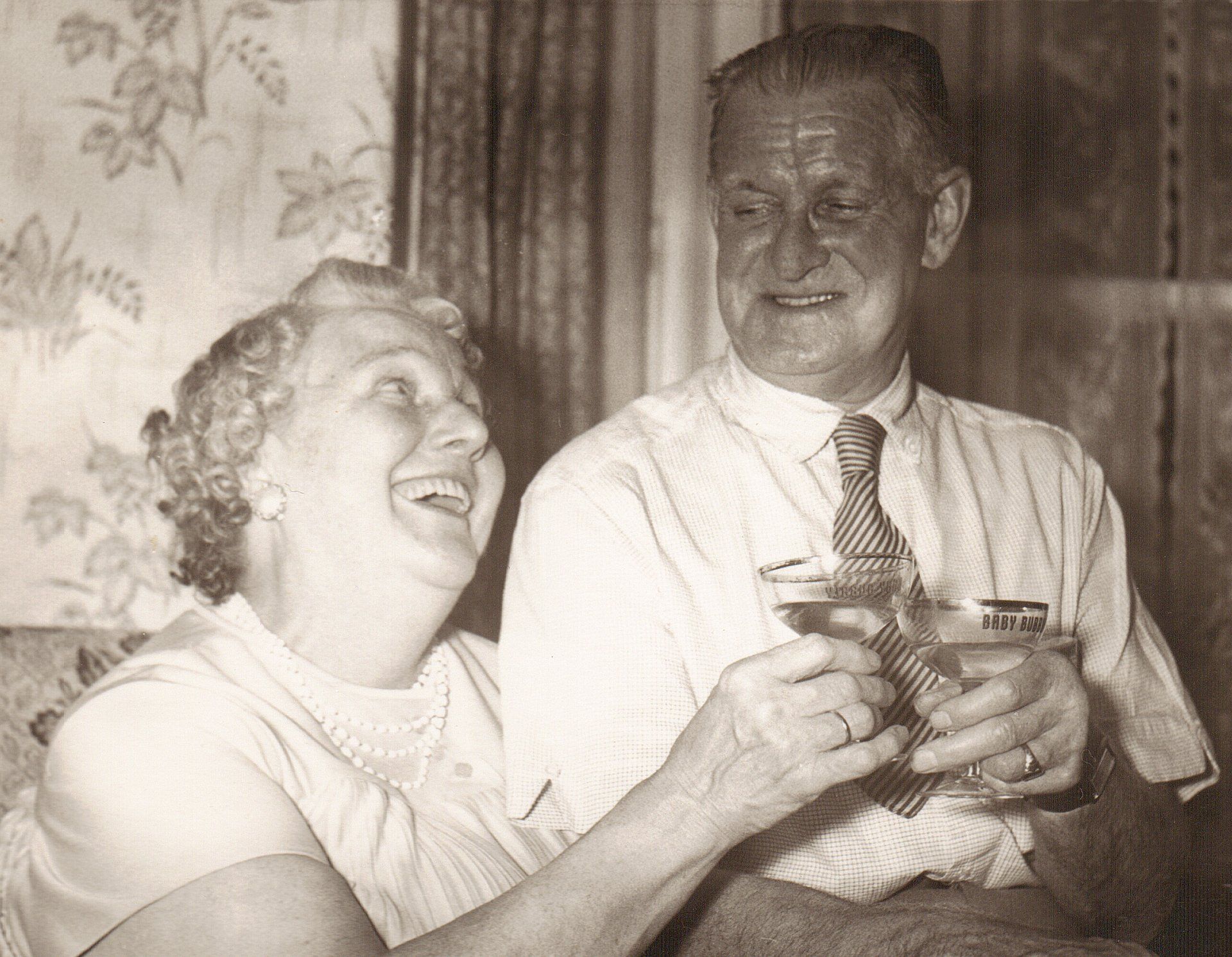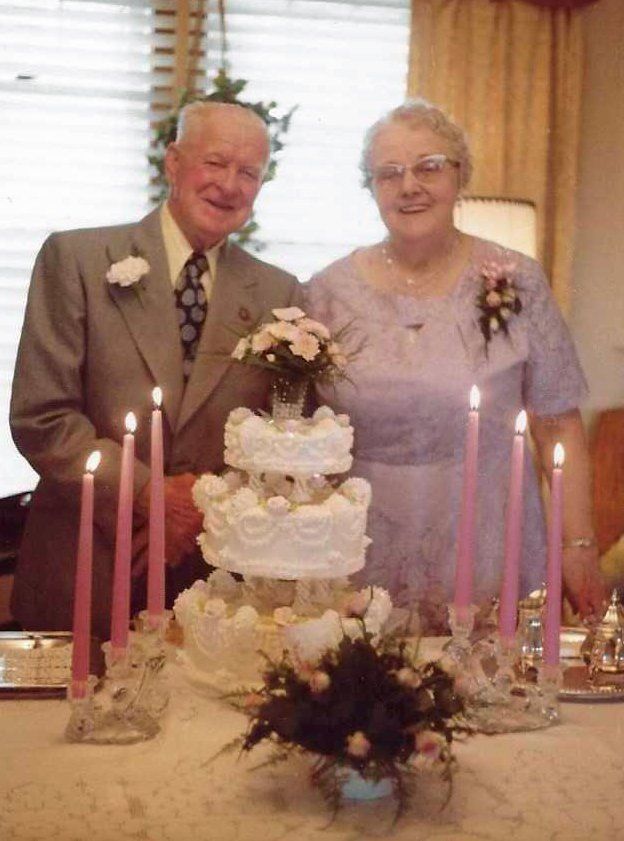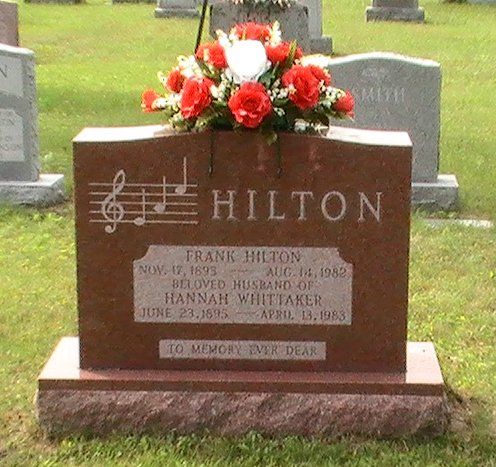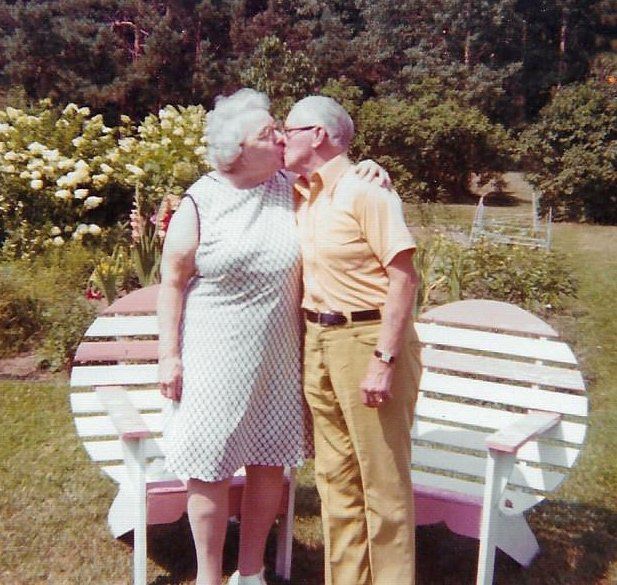Frank Hilton
Frank Hilton was my maternal grandfather. He was born November 17, 1893, at 5 Johnson Street , Tyldesley, Lancashire, England, the fourth child of Samuel Theodore Hilton and Margaret Alice Pemberton. He was baptized December 17, 1893 at St. George’s Parish Church in Tyldesley, and confirmed May 18, 1908 in the same church.
Grandpa enjoyed considerable success as a student at school, but was unable to pursue higher education as he had to leave school and go out to work to help support his family. My grandfather valued education ever so much, likely as a result of his being unable to further his own education to the degree to which he would have liked. He always asked how I did on tests at school and if I should answer, quite proudly, that I had obtained 98%, he would reply, “What happened to the other two marks?” I think he may even have been serious!
Grandpa found work, like so many in our family, in the cotton mills of Lancashire. He worked first as a piecer,a cotton spinning assistant, and eventually became a cotton spinner himself.
Before World War I broke out, Grandpa enlisted in the 1/4th Battalion of the Territorial Force with the Loyal North Lancashire Regiment on May 8, 1913 at Little Hulton. The Territorial Force was the volunteer reserve component of the British Army and its members were not required to serve overseas. Grandpa’s service number was 1670, but that was changed to 240234 when the Territorial Force was renumbered in 1917.
Grandpa is in the front row, left end of the photo below. He looks so very young, but would have been at least twenty! My grandfather was not a big man, just 5 foot 7 inches tall with a slight build. He served one year and two hundred twelve days in the Territorial Force.
War was declared by the United Kington, August 14, 1914, and Grandpa volunteered for active duty as of December 6, 2014. Private Hilton was posted to the 1st Battalion and sailed to France on the 12th of February, 1915 to join the 1/5th Battalion of The Loyal North Lancashire Regiment which had been in France since the previous August.
The following postcard photo was sent on March 14, 1915 to Grandpa’s eldest brother, John. What appears as a 16 at the bottom of the circle on the outer ring of the postmark stands for Field Post Office 16, and the 15 for the year is found below 14 MR, although difficult to read. The postcard basically says that Grandpa had received the weekly letter from his dad asking for a photo and he was sending this as it was the only one he had. He said he was having a good time and asks to be remembered to someone whose name I cannot read. Basically, I think he was trying to let his family know he was well but did not share many details of his current situation so the postcard could pass the censor.
Grandpa became part of the Signal Corps as evidenced by the little flags on the forearm of his uniform. Signallers were specialized soldiers who were responsible for military communications. Generally, their line of work led them to the front lines where they communicated, often with wired telephones, back to their companies and to headquarters. Laying the telephone lines in the trenches was considered very hazardous work due to enemy shelling. Grandpa was responsible for laying these telephone lines in the trenches.
Eventually, Grandpa was raised from the rank of Private. The chevron on his upper forearm, beneath the signaller badge indicates that he been appointed a Lance Corporal.
Grandpa was finally discharged from the army on the 4th of March, 1919 and was given the Silver War Badge, number B219327, as a result of his wounds. For his war service, he was awarded the 1914/15 Star, the British War Medal and the Victory Medal. The medals have survived; however, the Silver War Badge has been lost to time. These are my grandfather’s actual medals. His name is engraved along the edges of the British War Medal and the Victory Medal, and on the back of the Star.
While he had been in hospital in London, Grandpa had made friends with two Canadian soldiers and he had become enamored with the idea of emigrating to Canada. A year after he was discharged from the Army, Grandpa and Grandma made the no doubt difficult decision to leave their family and friends and they emigrated to Canada. They sailed on the Empress of France and arrived in Saint John, New Brunswick on the 23rd of December, 1920. Grandma always said they could hear the Christmas church bells when they arrived.
Grandpa and Grandma settled first in Hamilton, Ontario where Grandpa worked as a labourer splitting rocks on Hamilton Mountain. My grandfather was not really cut out to be a labourer and his English skin sunburned so badly he had to leave the job. Grandma found him work as the elevator operator in the factory where she had secured a position as a weaver. Grandma was a remarkable weaver and made good money as she was able to work multiple looms and weave as fast as the men.
My grandparents saved their money so Grandpa could attend telegraphy school. His work as a signaller during the war years had fostered in him an interest in telegraphy. Our family still has Grandpa’s practice pad that he used at school!
Grandpa secured a job in 1924 working as a telegrapher for the CN Railroad in Meaford, Ontario. The Hiltons settled into an apartment at 40 Sykes Street, over a grocery store where my mother,
Margaret Patricia Hilton, was born in 1925. The photo below shows this building in Meaford in 2008. What was once a grocery store had become a video store. It has likely been reincarnated yet again since our visit in 2008!
Shortly after the birth of my mother, the family moved to a house at 115 Trowbridge Street in Meaford, the photo on the bottom left.
Sadly, the telegraph did not last long once the idea of the telephone caught on. About 1933, the Hilton family moved to Parry Sound, Ontario where Grandpa worked for the Dominion Grocery Store as the grocery department manager for two years. He then moved his family to Durham and managed a Dominion Store there. About 1935, the owner of a private grocery store in Parry Sound encouraged Grandpa to return and go into business with him as the manager of his store. Grandma was only too delighted to return to Parry Sound where she had made many friends. Things worked out well until the store owner decided to bring his son into the business, necessitating a job change for Grandpa – in the middle of a depression!
In due course, Grandpa found work, once again as a labourer, at Canadian Industries Ltd. (C.I.L.) in Nobel, Ontario. Nobel is a small village about 12 km north of Parry Sound. The C.I.L. factory produced dynamite at that time.
Eventually, Grandpa was able to use his skills in office work and he became the bookkeeper for C.I.L. where he enjoyed a successful career until his retirement in 1963 at the age of 70. At that time, there was mandatory retirement at age 65 but Grandpa had managed to convince his boss to put his age down as five years younger when he signed on so that he would be able to work long enough to pay off his mortgage – certainly a man with great forethought.
My grandfather was an amazing man. He could turn his hand to many things and he was a perfectionist. But one thing he couldn’t do was drive a car! My father tried to teach him on many occasions, but it was just never to be. Grandpa took a taxi to and from work in Nobel, was driven to church by friends, neighbours, or my parents, and walked uptown to do the weekly shopping or to pay bills. He particularly enjoyed the weekly outings uptown once he retired. He would always be freshly shaven, dressed up with his shoes shined, fedora atop his head, and scarf tucked neatly under his overcoat. Shopkeepers seeing him walk by each week remarked on how particular he was with his appearance. My grandfather gave the impression of a very proper English gentleman! One would never know his working class roots from his deportment.
While he may have appeared an English gentleman, Grandpa loved Canada with all his heart and soul. It was with tremendous pride that he and Grandma obtained their citizenship papers on April 8, 1969.
Grandpa and Grandma lived at 56 William Street in Parry Sound from the early 1940's until 1982 in a brand new house that had built for them. Their best friends, and my Godparents, Wynne and Daisy Ritchie, lived next door in an identical house built on the opposite plan so that the ladies' kitchens faced each other and they could chat across the driveway to each other. It was a shared driveway which was no problem for either of them as my grandparents never owned a car, of course!
It was with great pride and joy that Grandpa tended to his garden which took up a large section of the back yard and was always full of beautiful flowers, especially gladiolas, and fresh vegetables. I remember one year when he ordered special 'sheep dip', as he called it, as fertilizer for his garden. The stench could be smelled for blocks! But the garden produced a wealth of veggies that year.
My dad's first cousin, the late Charles (Chuck) Poytress, wrote to me about a bowling event he witnessed sometime in the early 1940’s. My grandparents belonged to a weekly five-pin bowling league in Parry Sound and Chuck, as a young boy, was a pin setter there. In those days, there were no automatic bowling pin setters; it was all done by hand. I am sure it was a rather dangerous job! Chuck was setting pins in one lane when he heard some excitement in another lane. It seems my grandfather was well on his way to bowling a perfect game. Chuck wrote, “Well your Grandpa was bowling and I could see there was a bit of excitement on his team, particularly from your Grandma Hilton. Then you could hear, … just three more strikes … just two more strikes and the tension, of course, was building! I’m sorry, I can't remember if it was on the last frame or the last ball but my recollection is he didn't make it. But it was some exciting either way!” Poor Grandpa, so close!
Parry Sound Bowling League Circa 1958
"James Street Bowlers"
Back Row left to right: Harry Duncan, Wynne Ritchie, Tony Gilchrist, UNKNOWN
Front Row left to right: Charlie McAlister, Peter Rudy, Frank Hilton, Johnny Roscoe
Photo courtesy of Janice Goddard
Grandpa was an avid gardener, curler, golfer and bowler. He played bridge and poker well enough, but I think he played cards for my grandmother. I don’t think Grandpa enjoyed them nearly as much as she! My grandfather was devoted to my grandmother and did everything he could in life to please her.
I believe my grandfather had a long and happy life. He was a kind man, polite to everyone he knew. He was the church treasurer for many years and was well respected in his community. He walked me down the aisle the first time I married, and I know it was one of the most difficult things he had ever done as he did not approve of my choice of husband. As it turned out, he was an excellent judge of character! My grandfather always did the right thing, no matter the personal cost.
Grandpa spent the last few months of his life confined to a hospital bed in what was then called the Mississauga General Hospital. He suffered from an inoperable brain tumour. I remember one day when I visited him, he said that he didn’t mind it there in the ‘boarding house’. He told me about all the other young fellows who lived there with him. I think his mind had taken him back to his army training days. He wasn’t unhappy about it in any case.
Grandpa died August 14, 1982, just a few months shy of his 89th birthday. He was father to one daughter, Margaret Patricia Hilton, grandfather to my sister, Kim, and me, great grandfather to my daughter, and after his death to Kim’s two children. He now has a great great granddaughter, great great grandson, and two great great granddaughters. He would have been so proud of all of them. Had he been alive to know them, the one thing I know for sure is that his comment to each of them at some point in their lives would have been, “What happened to the other two marks?”



